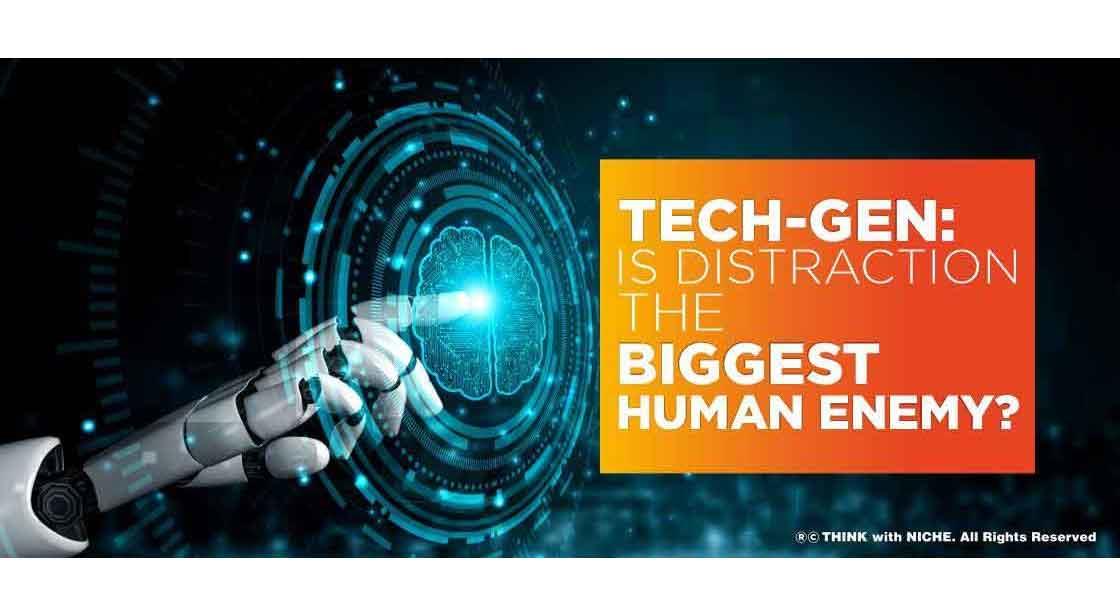Tech-gen: Is Distraction The Biggest Human Enemy?

Blog Post
As per Simon's theory, mankind is suffering from a comparable lack of responsiveness as consumers of the world's biggest data boom. #ThinkWithNiche
The mathematician economics expert Herbert A. Simon authored perhaps the most succinct summary of our contemporary conflict down in 1971, whenever the internet technology remained 21 decades away, and the tiny operating systems have been the shape of cars before the Google company was originally found, had even handled to somehow get oneself conceived: What data ingests is somewhat noticeable: It gobbles up the consideration of its people who receive. As a result, a richness of knowledge produces a scarcity of concentration, necessitating effective allocation of that awareness from among the excess of birthplace news that may absorb it. As per Simon's theory, mankind is suffering from a comparable lack of responsiveness as consumers of the world's biggest data boom.
The issue of awareness has risen to the forefront of our collective psyche in recent times. We look for it in neuroscience research laboratories, grieve its decrease on banners, idealize it in collective action, reliability activities, detect its exclusion in an increasing number of our youngsters annually, inculcate it two times per week in a practice session, strap it as the generator of consciousness imperial powers, and shake it up to godlike thresholds with prescription medications initially cure early-onset dementia and excessive daytime sleepiness. In reality, everybody actually listens all the time—practically it's difficult for people never to—but the economy in which people spend it and the products we receive in return have evolved tremendously.
The "tech-savvy" is the upcoming wave of attendees who have built their lives around technology as well as other face-paced technology. There has been quite a lot of agonizing about all the physical abilities they could perhaps have little, particularly the capacity to focus on a difficult process from start to finish, but certainly, they can now do small details their seniors can't, such as hold 34 concurrently discussions throughout 6 various media or actually listen to swapping among learning and memory objectives in a manner that was previously thought unattainable. The cortex, more than other components, is intended to vary as a function of exposure, a characteristic known as neuroplasticity.
The circuitry of the nervous system will surely alter because we're extremely competent at the 21st-century work Meyer refers to as "darting," allowing us to cope with much more data more effectively. According to neuroscientists, the neural network is evolving at a greater rate nowadays than it has been since the primordial invention of instruments. According to studies, we're constantly learning new abilities, such as a greater field of vision and the capacity to process data efficiently. Kids nowadays could have an intuitive brilliance that we shouldn't grasp of how several initiatives all fit together to form things entirely new. They may be able to participate in seemingly contradictory activities such as conscious online browsing and mindfulness while Tweeting. They'll perhaps work to reach the contradictory, Zenlike condition of concentrated attention during excursions of reckless obligation.
You May Like
EDITOR’S CHOICE












